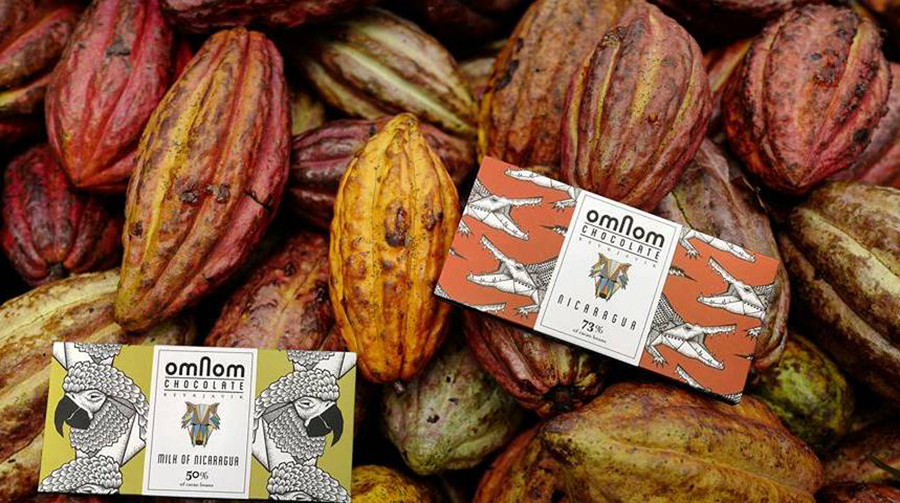RIO DE JANEIRO, BRAZIL – In recent years, Nicaragua’s cocoa has established itself as one of the best in the world for making chocolates, and now the country is about to reach a new level with the launching of a school where people will learn to make the “food of the gods” of pre-Columbian Mesoamerica.
Privileged with cocoa of the trinitario species, sometimes criollo, the Nicaraguan bean stands out for an aroma and a flavor capable of distinguishing itself even among the less experienced.

During a tasting exercise with the inexperienced, chocolate chef María José Tejero demonstrated how Nicaraguan cocoa makes it possible to produce “divine” chocolates with no other ingredients than the seed itself.
The best thing, according to the Venezuelan-born chef, is that in Nicaragua, there is enough raw material and quality to supply the world with chocolatiers, in this case, through the Semilla Cacao Group school.
“What we are doing is opening a head office in Managua to train future chocolatiers because Nicaragua has a wonderful cocoa, of a quality that the world is requesting, and for them to ask us for chocolates, we have to have chocolatiers,” Tejero told Efe.
RECOGNIZED QUALITY
In recent years, among the milestones of Nicaraguan cocoa is its entry in 2015 in the list of countries producing fine or aroma cocoa of the International Cocoa Organization (ICCO), with an approval level of 100%.
Another was its placement as one of the 17 best in the world at the 2015 International Cocoa Awards, held in France, and later, in 2016, the gold medal for the best organic chocolate in the world in the category Dark Chocolate Bars with “O’Payo 68%”, in London, during the International Chocolate Awards.
With this raw material, said the chef, the only thing missing are chocolatiers capable of sustaining themselves in the market. In the school, they will be trained with the method “I learn, I practice, I undertake”, with the support of the Association of Producers and Exporters of Nicaragua (APEN).
“We make people learn, practice the product and go to the market more formalized so that it is not a trial. I want the entrepreneur to be formalized, to have his bank account, his brand, to work, and when he has all that, to start,” she explained.
In this way, according to the chef, the new chocolatiers will not limit themselves to tempering the chocolate and turning it into a bar but will know how to choose where the seed they need comes from based on the bitterness, acidity, and astringency they are looking for, they will know how to evaluate the production process, shell, and even market their chocolate professionally, supported by a network of colleagues who will always have the technical support of the school.
“BEAN YOUR BAR”
Tejero, who was already doing courses like these in his native Venezuela, said that one of the characteristics of the school is that students will learn to make “bean to bar” chocolates, with the tools they already have in their home kitchens, except for some that they will have to introduce.
“It’s a wonderful way for those people who have always had a restlessness, who like cooking and who have always wanted to undertake chocolate making or ‘bean to bar’ chocolate,” he commented.
The school will start its classes next June in Managua, with courses ranging from the preparation of chocolate bars or truffles to sensory analysis and preparation of cocoa liquor.
When talking about Nicaraguan cocoa and its potential, Tejero, who arrived in the country for six months and has been here for two and a half years, is enthusiastic.
“It was a surprise to arrive here and to have been able to enter the world of cocoa and chocolate as I did. Every cooperative I go to, every road I travel in Nicaragua is a gift for the soul,” he said.

